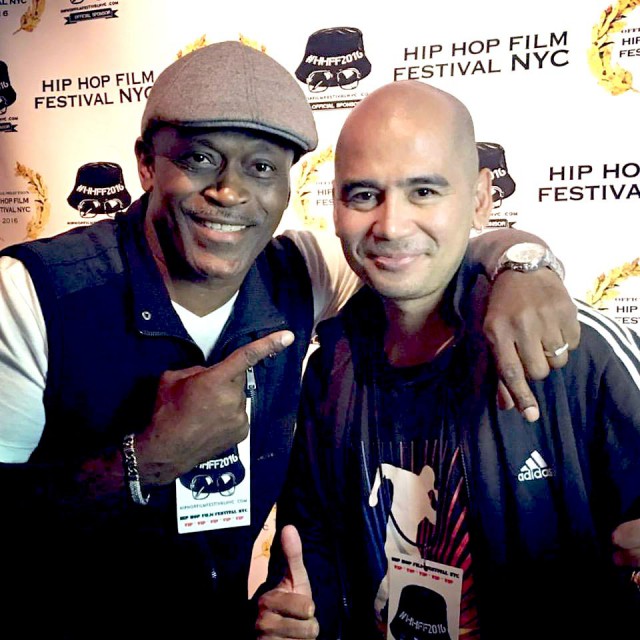
By Rory Winston
“I came through it and I shall return,” railed Douglas MacArthur during WWII in 1942 as he fled from the Philippines moments before the Japanese invasion. A mere two years later and he made good on his word. He was back alright. Back with a vengeance. Fate being a reputedly fickle but recurring ordeal, it was no more than a half-century later that a highly gifted Filipino found himself fleeing another sort of island, a sanitary but lonely one, an island bearing all the hallmarks of a socialized oasis and all the frailty of a multiculturally deserted rock washed by the rising tides of xenophobia - namely, the linguistically isolated island of Finland. Well, “Love it or…” and so he left it.
No – there was no one chasing him off, no enemies at the gate, no specific threat being levied at his person. And yet he was leaving. Uttering his words more tentatively than MacArthur, Ricky Carranza said with equal parts resignation and resolve: “I must go. I can go no further here. No one here to help me make things happen. It’s not likely I’ll return.”
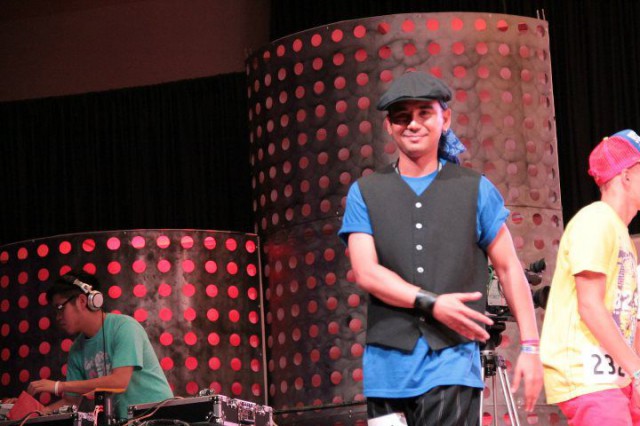
Despite being in charge of an entire flotilla’s worth of up and coming dancers, Ricky Carranza could find neither national support for a feature film script (a fascinating story on which I myself had been working with him, a story born of Ricky’s own experiences in the Philippines and Finland) nor could he even get financing for a documentary on the history of Filipino street dancing and its Finnish counterparts - this, despite the fact that the subject matter was his acknowledged area of expertise. Though Carranza had successfully created a thriving dance center on the outskirts of Helsinki – one that not only produced some of the most noteworthy hip hop dancers in the country but one that had become a production house for championship teams and a home to visiting guest teachers of international renowned – when it came to realizing his own dreams, Finland had abandoned him. Having carried the country from one victory to the next (proudly advertising the benefits of a Scandinavian society), the country itself had, in an ironic twist of fate, turned its back on him.
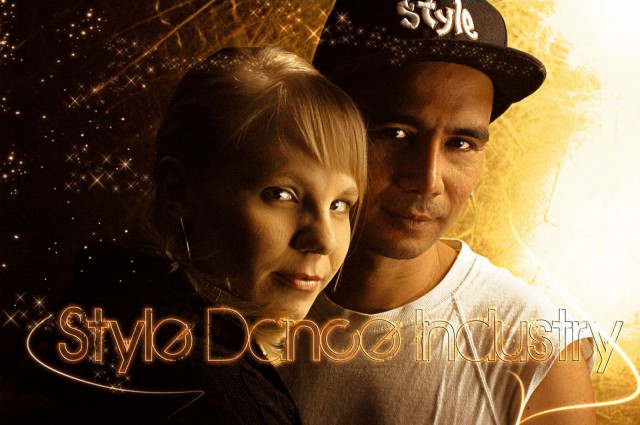
Oh, don’t get me wrong, Ricky was getting by just fine. He had for years been a great silent partner to a host of ambitious locals. His style had shimmied its way up from student to performer to teacher to a next generation of acclaimed choreographers. Finns had often even used his tapes and credentials to land prestigious international jobs, making sure to take him off their team only after their bids had been approved from abroad. In fact, it was not long ago that an American representative (who wishes to remain anonymous) from a major record label confided “yeah, we know it’s crappy that Finnish locals at Sony BMG pulled him off a job when he was the determining factor in getting it green-lighted, but we don’t get involved in the dirty politics of our partners from small countries. Corrupt…? Hell yah - but it’s for them to sort out.”
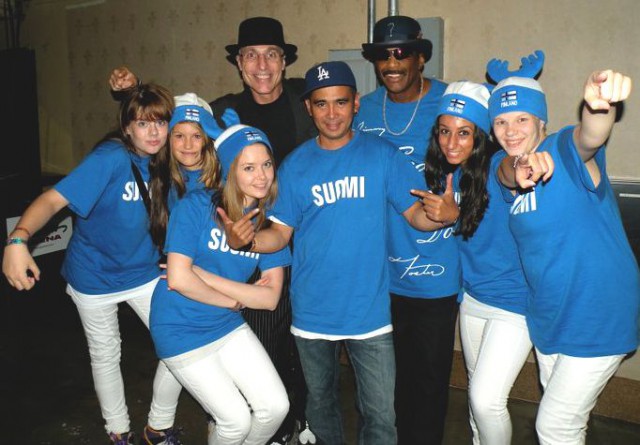
Whether or not Ricky would return to Finland - either temporarily to wrap things up or in the more prolonged departure elicited by having a family to support – one thing was certain: his work, like the Terminator, would ‘be back.’ Like most descent works of art, Ricky's work was bound to saunter its way back across the border. Decked out in the full regalia of international recognition, it would one day have to reappear. Perhaps, it would cross under cover of a film, or sneak back under the invisible wires of xenophobia as part of an international festival, or attach itself to a world famous pop star invited for a gig, or even drop from the air in the form of an American TV series.
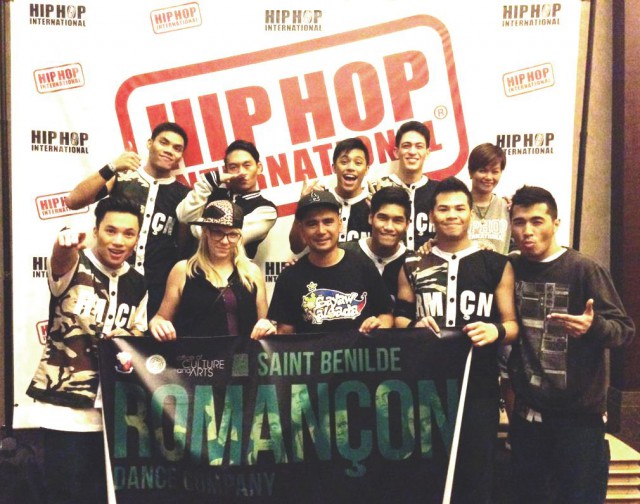
Oh, it would return alright. As certainly as MacArthur it would 'come through it all' and return. One fine day, it was bound to take up residence in the hearts of a new generation – a generation that would silently admonish their parents with a knowing glare, one that said, ‘What were you guys thinking? We had him in our midst and you didn’t even bother collaborating?’ The embarrassed few will likely concede that they were ill-equipped to gauge the caliber of Carranza’s talent. The majority will shrug as if they had no idea.
For now, however, one thing was certain: recognition in Finland would simply not be forthcoming until a more self-assured and informed international public appraised the quality of Carranza’s work and gave locals the permission to like it. To like something without fear of looking like a fool… this was an epidemic of national proportions.
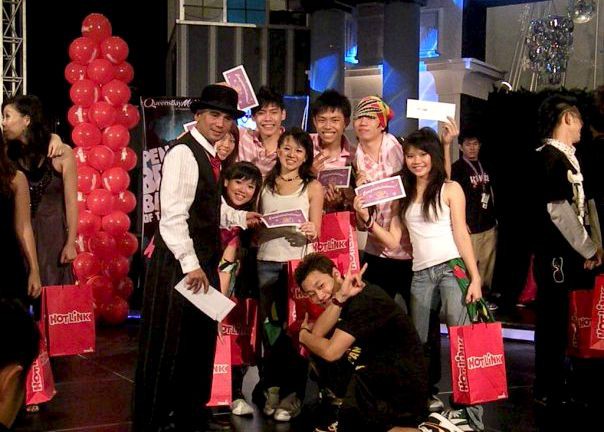
Luckily, recognition – despite the lack of local help - now seems closer than ever. Ricky did not heed the advice he was given in Finland; he did not allow those who dismissed his work to sabotage his aspirations. Despite years being spent in what can only be described as a 'hospice for ambition', Ricky persevered. And, as poetic justice would have it, his work not only managed to get a good bit of attention in a short span of time but has already been invited back to the country from which it absconded.
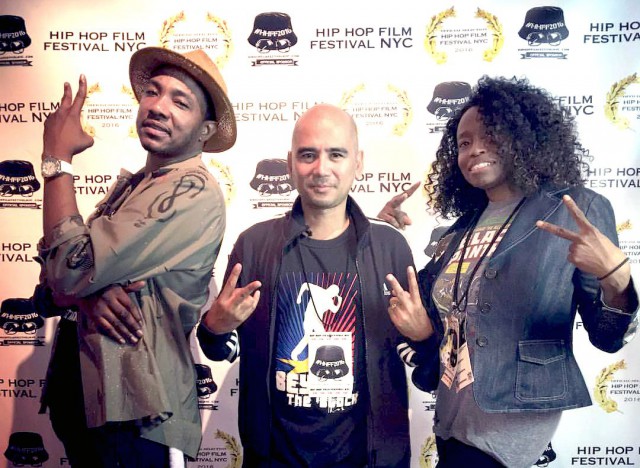
It was just a few days back that I gave myself the enjoyable assignment of covering Ricky Carranza’s self-financed documentary, Beyond the Block for the New York Resident magazine. He had completed the work just in time for the first annual Hip Hop Film Festival New York City – a magnificent #Powertothefilmaker venue where the emphasis lay in community, growth, workshopping and getting true talents the attention they need regardless of financing, country of origin, or status. Started painstakingly by the passionate duo, CR Capers and Julien Henri Lockhart Miles, the festival is as close to the heart and inception of hip hop as any urban event is likely to get. None of the hype, none of the "bling-for-your-supper" mentality, this lovechild born of the imaginations of Capers and Miles returns the kind of guerrilla must-do integrity that often gets buried under mounds of self-adulation. As organizers go, HHFF’s crew flies under-the-radar while shinning their spot on those they feel need and warrant the attention.
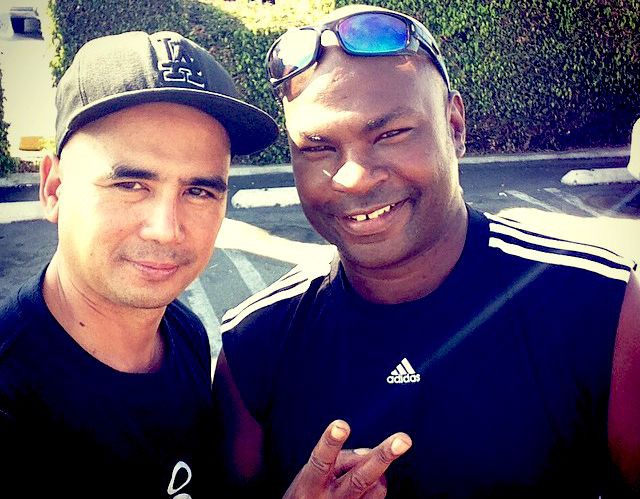
Since this festival, Carranza’s film has been part of an ongoing conversation about the contributions made to the hip hop dance genre by countries other than the US. Presently being screened in LA at the Long Beach Convention Center as part of the Long Beach International Film Festival, Carranza's film is also finally receiving some attention back home. Both homes to be precise - the Philippines, where they had long been routing for its success and Finland where ...well, I wouldn't venture to know what they were routing for. But, at least, news has it that Ricky's film will now be given a special screening at CAISA, the international culture center in Helsinki. If nothing else, this may be an important first step in finally getting Finns to realize some of the overlooked foreign talents living in their own backyards.
Beyond the Block delves into the long and winding history of Filipino hip hop dancing and those who catalyzed its growth. At 2 hours and 48 minutes, the film is ripe PBS or BBC material and can foreseeably enjoy a 3 to 4 part run on many educational channels. The film manages to tell several stories simultaneously. It details how street dance became stage-worthy, how locking, popping, and breaking were each introduced into the form and how a generation of impoverished youths responded to the changes. The film also explores Philippine culture, explaining how a people with a natural sense of rhythm who had expressed themselves for years in both tribal and ethnic dance turned to hip hop dance as a means of redefining themselves within a contemporary context.
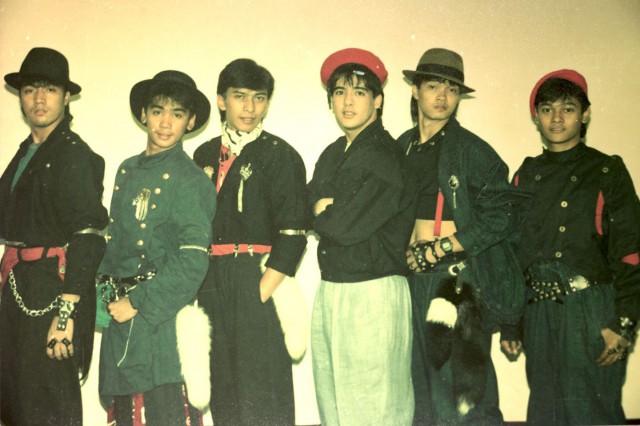
American shows like Soul Train and films like Saturday Night Fever caught the imaginations of Filipino youths and they – along with Ricky – soon took the streets to practice what they saw. It was an era devoid of Youtube – one that relied on watching television, one where the imperfections (sic) of memory advanced creativity. After all, when someone couldn't precisely recall all the moves they had witnessed on TV, they would fill in the gaps by creating their own moves. It was, in short, an era of paradigm shifts in the arts, one that culminated with local shows like Dance 10 – a weekly dance competition TV series that became a springboard for an entire generation of new talents.
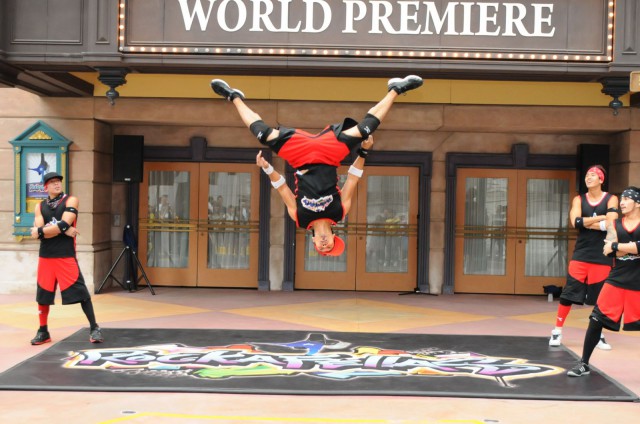
Taking us from American legends like Michael “Turbo” Chambers of Breakin renowned to Filipino visionaries such as ex-BMXer Larry Moncado, Carranza’s film is a comprehensive look into several movements in the world of international dance. With interviews that include: B-Boy Ronnie, Jojo Alejar, Xernan Alfonso, Boogaloo, Sunny D-Lock, J-Masta, B-boy Mouse, Kobra, Scoo B Doo, Dj Drexx, SkeeterRabbit, Sugarfoot and Jet-Li just to name a few, the film is a testament to an era of change. It explains how and why we got to where we are today.
Giving us world famous Filipino dance crews like A-Team, Jabbawockeez, The Crew, Manouvres, Poreotics, Rockstars and Ricky’s passionate - albeit humbler - brotherhood of dance, Funk System, the film shows as much as it tells.
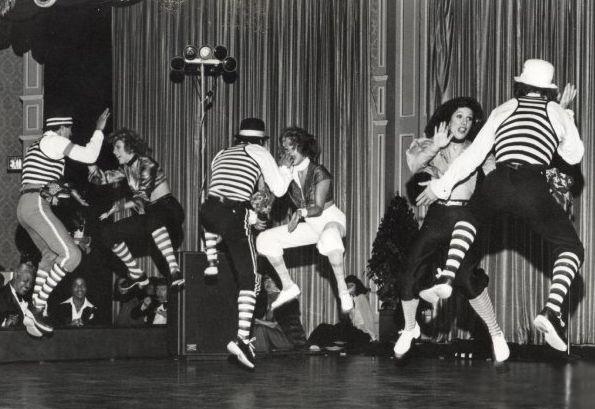
With a keen eye for capturing both visual details and personalities, Carranza displays his love of education and entertainment as two inseparable forces. Beyond the Block has just about enough élan, substance and storytelling to let us know that Carranza is more than just an expert in dance, he is very much a serious film director in the making.
As a man who successfully went from dancer to missionary to teacher to choreographer, Carranza knows how to move from one discipline to another without abandoning what he had learnt along the way. It is this ability to adapt – from life in one country to life in another, from one profession to another, from one ambition to the next – that becomes evident in his interdisciplinary approach when making films.
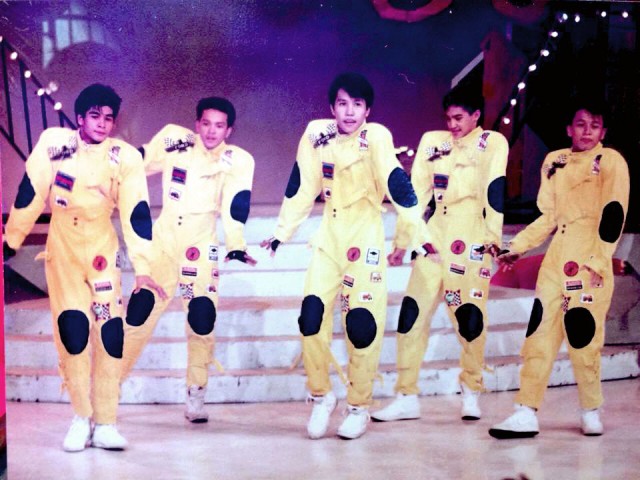
While the monologues breath with cross-cultural perspective, the dynamics of the POV and editing smack of hip hop. As for the drive that made it possible for Carranza to complete this film without any funding, it has missionary written all over it; 'If there’s a message worth delivering,' Carranza seems to say, 'there will damn well be a way of getting it out there.'
Having first met Ricky Carranza while scouting for interesting guests for my radio show, I have remained in contact with him ever since. It was, to be sure, a serendipitous moment for us both as shortly after this meeting, the two us dived into an intense period of collaboration. We began to discuss different subjects for feature films and ended up completing a full draft of a screenplay for a fiction film that was based on his life story. While in the process of writing with him, I not only became certain that Carranza harbored talent as a filmmaker but knew that he would do all he could to impregnate any film with his choreographic sensibility. In short, his films would all have to learn how to dance.
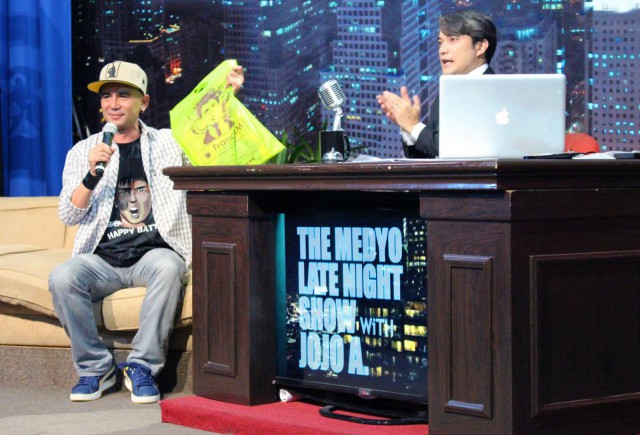
As someone who has spent years not only working with screenplays but reviewing films, I can conclude that Carranza has an idiosyncratic approach that is closely in keeping with his own personality. I can easily envision Carranza seeing the dialogue between his camera and his actors as a hip hop dance battle – frames locking, dialogues popping, and editing ‘breaking,’ in time to the story. As assuredly as Bob Fosse had brought theatrical jazz dancing into framing the scenes in Cabaret and even in Lenny (a film that although has nothing to do with dance bears his signature POV's and editing style), and as poignantly as John Woo had martial arts movements dictate the fluidity of his cameras movements, Carranza would bring street dance into his filming methodology.
As for Finland, well, it’s not an overstatement to conclude that Ricky Carranza has already leapt ‘beyond its blocks.’ And much to his credit, he has done so: ‘lock, pop and breaking barrel,’ - most importantly, by breaking free of his surroundings without any help from the cultural establishment. As any boy from any hood knows, it’s only a matter of time and talent before those who have left the block start having streets named after them.
[i]For the film review on Ricky Carranza's Beyond the Block as part of the Hip Hop Festival New York City please check: Linkki
[i]For more information on the Hip Hop Film Festival New York City: Linkki








24 kommenttia
DelTone1
20.8.2016 15:10
Great article dude. Says a lot about not being recognized where you come from. Cool they have a festival like that in NY - must check it next time around.
Vastaa kommenttiinVastaa kommenttiin
jason E
20.8.2016 16:04
true
LLes
20.8.2016 16:10
I hear you.
Rory Winston
20.8.2016 16:42
thanks so much - greatly appreciated. And yes, the festival is definitely worth checking out.
zack_onTrack
20.8.2016 15:15
Very cool piece. The guy is inspiring. Never give up!
Vastaa kommenttiinVastaa kommenttiin
Libie
20.8.2016 15:36
Totally inspirational. Can't believe he could keep it up...
jason E
20.8.2016 15:59
Inspiring ain't the half of it, man. You need massive inner strength to ignore dickheads and go for your dream.
D-day2010
20.8.2016 16:24
I agree
fxx
20.8.2016 16:27
Zack I agree with you 100% - Never give up. never give in.
Rory Winston
20.8.2016 16:43
Thanks for the feedback and yeah, Ricky is fantastic.
JJ.Lets
20.8.2016 15:25
"I shall return" - yeah man! That's one fckg great way to come back. I know lotsa guys who'd love to do the same and show some scumbags what they're made of. Really shit to be overlooked like that but great they got Hip Hop Festivals the kind that help guys who have talent.
Vastaa kommenttiinVastaa kommenttiin
Rory Winston
20.8.2016 16:44
You are right. It is terrible to be overlooked. And festivals like the Hip Hop Film Festival do make a great deal of difference.
Libie
20.8.2016 15:56
Excellent article. Well, it'll certainly make me think twice about doing any gigs in Finland though. Amazing guy this Ricky. And lucky he got into the NY's hip hop festival in time.
Vastaa kommenttiinVastaa kommenttiin
jason E
20.8.2016 16:03
well said
fxx
20.8.2016 16:29
U are one hot girl :) And you're right...
Rory Winston
20.8.2016 16:46
hahha... well, Finland does seem to have its ups and downs... But yes Ricky is exceptional in what he does and the Hip Hop Film Festival serves an extremely important function in bringing attention to the right people.
jason E
20.8.2016 16:01
This just reminds me why we need people like the guys who do these festivals and why articles like this are so important instead of all the paparazzi shit we usually get. I mean there's talent out there but it's gotta be discovered. Ricky man, you keep at your dream!
Vastaa kommenttiinVastaa kommenttiin
LLes
20.8.2016 16:08
spot on was thinking the same
LLes
20.8.2016 16:09
Great indictment of bitter people. Think it's the same in many places. And Ricky got some major heart to keep going like that. Hope you guys do pull off that film ya talking about.
Vastaa kommenttiinVastaa kommenttiin
letty222
20.8.2016 16:13
Oh that is really a heart rending tale. I am only glad that Ricky managed to pull through. So many would have given up in his shoes. Fantastic exposé.
Vastaa kommenttiinVastaa kommenttiin
D-day2010
20.8.2016 16:23
There's a lot of people like this guy out there and some not strong enough to just pull through. Good article but he's not alone.
Vastaa kommenttiinVastaa kommenttiin
fxx
20.8.2016 16:29
Oooh this guy rocks. Incidently, love Jabawockees - saw them live. Totally amazing the level they got in Phillipines. Really astonishing sets. The article is way cool.
Vastaa kommenttiinVastaa kommenttiin
farhanjani
21.11.2024 01:05
Firming Facial Care Solution https://denizenlive.myshopify.com/ Find your fit with the High-Elastic Jacquard Yoga Clothes Suit, combining style and performance.
Vastaa kommenttiinVastaa kommenttiin
farhanjani
23.11.2024 01:05
減肥藥 https://www.xenicalofficial.com/ Choose weight loss pills for long-lasting energy while achieving your goals.
Vastaa kommenttiinVastaa kommenttiin